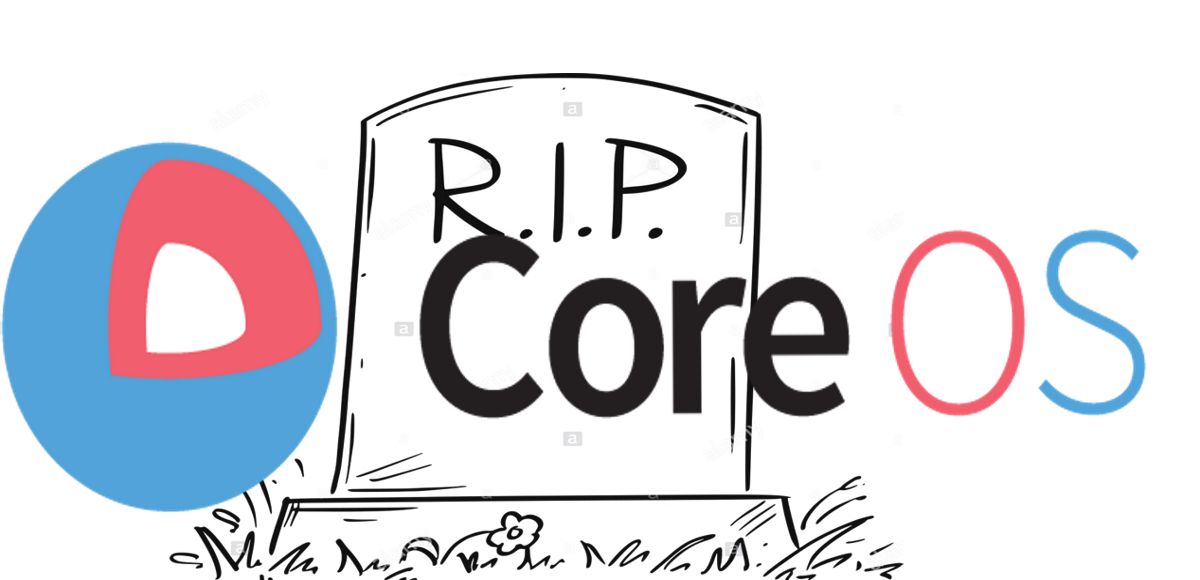
A few days ago it became known on the CoreOS blog the end date of support for distribution, as it was replaced by the Fedora CoreOS project (after the acquisition of the project CoreOS, Red Hat merged Fedora Atomic Host and CoreOS Container Linux into one product).
For those unfamiliar with CoreOS, they should know what it is a lightweight operating system (a fork of Chrome OS) open source based on the Linux kernel and designed to provide the infrastructure for cluster deployments, while focusing on automation, ease of application deployment, security, reliability, and scalability.
As an operating system, offers only the minimum functionalities necessary for the implementation of applications within software containers, along with built-in mechanisms for service discovery and configuration sharing.
May 26, 2020 will reach the end of its useful life and will no longer receive updates. We strongly recommend that users start migrating their workloads to another operating system as soon as possible.
Of the distribution CoreOS Container Linux, the project Fedora CoreOS borrowed the configuration tools in the ignition stage, an atomic update mechanism and a general philosophy of the product.
From Atomic Host, technology was transferred to work with packages, support for OCI (Open Container Initiative) specifications and additional container isolation mechanisms based on SELinux. In the future, it is planned to provide integration with Kubernetes (including those based on OKD) to orchestrate containers on Fedora CoreOS.
End of life chronology
The last update to be launched, is scheduled to be released on May 26, after which the project life cycle will end.
While for September 1 of this same year, CoreOS related resources will be removed or they will only be read-only.
For example, installation images, builds for cloud environments, and update repositories offered for download will be removed. GitHub repositories and bug tracking will remain read-only.
We know this timeline is aggressive. We have tried to provide the longest possible migration period in accordance with our ability to maintain the operating system. We will take the unusual step of removing CoreOS Container Linux artifacts and images after September 1 to discourage continued use after the operating system no longer receives security updates.
Migration from CoreOS to Fedora CoreOS
For those currently using CoreOS, migration to Fedora CoreOS has been simplified, as a manual has been prepared which explains the main differences.
In its current form, Fedora CoreOS cannot completely replace CoreOS Container Linux as it does not include rkt container management tools, it is not compatible with Azure, DigitalOcean, GCE, Vagrant and Container Linux platforms, and it does not exclude the possibility of backward changes and compatibility violations.
Alternative
For those who do not have the ability or desire to switch to Fedora CoreOS, You can pay attention to the Flatcar Container Linux fork which is compatible with CoreOS Container Linux.
This fork was founded by Kinvolk in 2018 after Red Hat announced its intention to integrate CoreOS technology with its products. The project was created to ensure the continued existence of CoreOS Container Linux, in case of major changes or minimization of development.
Flatcar Container Linux moved to its own standalone infrastructure for release development, maintenance, assembly, and publishing, but codebase status was synced with CoreOS (changes came down to replacing branding items).
At the same time, the project was developed taking into account the possibility anytime to continue a separate existence in case of disappearance from CoreOS Container Linux. For example, in a separate "Edge" branch for Flatcar Container Linux, experiments were done with adding new features and applying patches.
Source: https://coreos.com